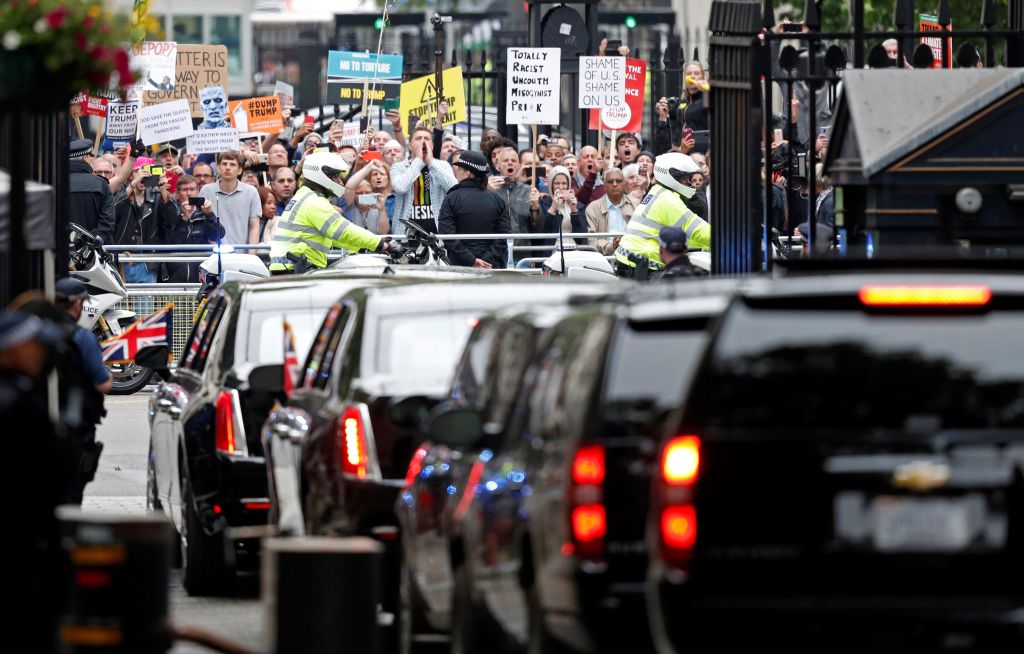Experts aren't sure Trump actually knows how unpopular he is in Britain and elsewhere around the world


A free daily email with the biggest news stories of the day – and the best features from TheWeek.com
You are now subscribed
Your newsletter sign-up was successful
People who keep tabs on public opinion outside the U.S. tend to roll their eyes when President Trump insists that America is more respected around the world now or, as he did in a joint press conference with British Prime Minister Theresa May on Tuesday, that he is cheered enthusiastically by citizens in other countries. "To Trump's critics, the display showcased a president refusing to come to grips with the reality that he remains deeply unpopular around the world and that perceptions of U.S. global leadership have plummeted during his 2.5 years in office," The Washington Post notes. But Trump may not actually know this.
"Trump has sparked protests during several of his trips abroad, but he often has attempted to schedule his itineraries to avoid encountering the public," the Post reports. In London, where an estimated 75,000 people protested Trump on Tuesday — including projecting polls showing how much less popular he is in Britain than his predecessor, Barack Obama — Trump traveled mostly by helicopter.
"It's an open question of whether Trump actually understands the profound outrage that he engenders from foreign publics," Ned Price, an Obama White House national security spokesman, told the Post. Pointing to recent mollycoddling efforts to hide the USS John S. McCain in Japan, Price said it's clear Trump's "staff goes to great lengths to pull the wool over his eyes," and "one can only imagine what other tactics they are using to provide him with sources of information that inflate his popularity overseas."
The Week
Escape your echo chamber. Get the facts behind the news, plus analysis from multiple perspectives.

Sign up for The Week's Free Newsletters
From our morning news briefing to a weekly Good News Newsletter, get the best of The Week delivered directly to your inbox.
From our morning news briefing to a weekly Good News Newsletter, get the best of The Week delivered directly to your inbox.
When President George W. Bush was greeted by massive protests during his state visit in November 2003, after his Iraq invasion, he acknowledged his unpopularity with self-deprecating humor. "There was no effort to hide or keep him away or pretend it didn't exist," Bush speechwriter Peter Wehner tells the Post. "The effort was to try to make the case in a way that was dignified and had a touch of humor and grace where necessary."
A free daily email with the biggest news stories of the day – and the best features from TheWeek.com
Peter has worked as a news and culture writer and editor at The Week since the site's launch in 2008. He covers politics, world affairs, religion and cultural currents. His journalism career began as a copy editor at a financial newswire and has included editorial positions at The New York Times Magazine, Facts on File, and Oregon State University.
